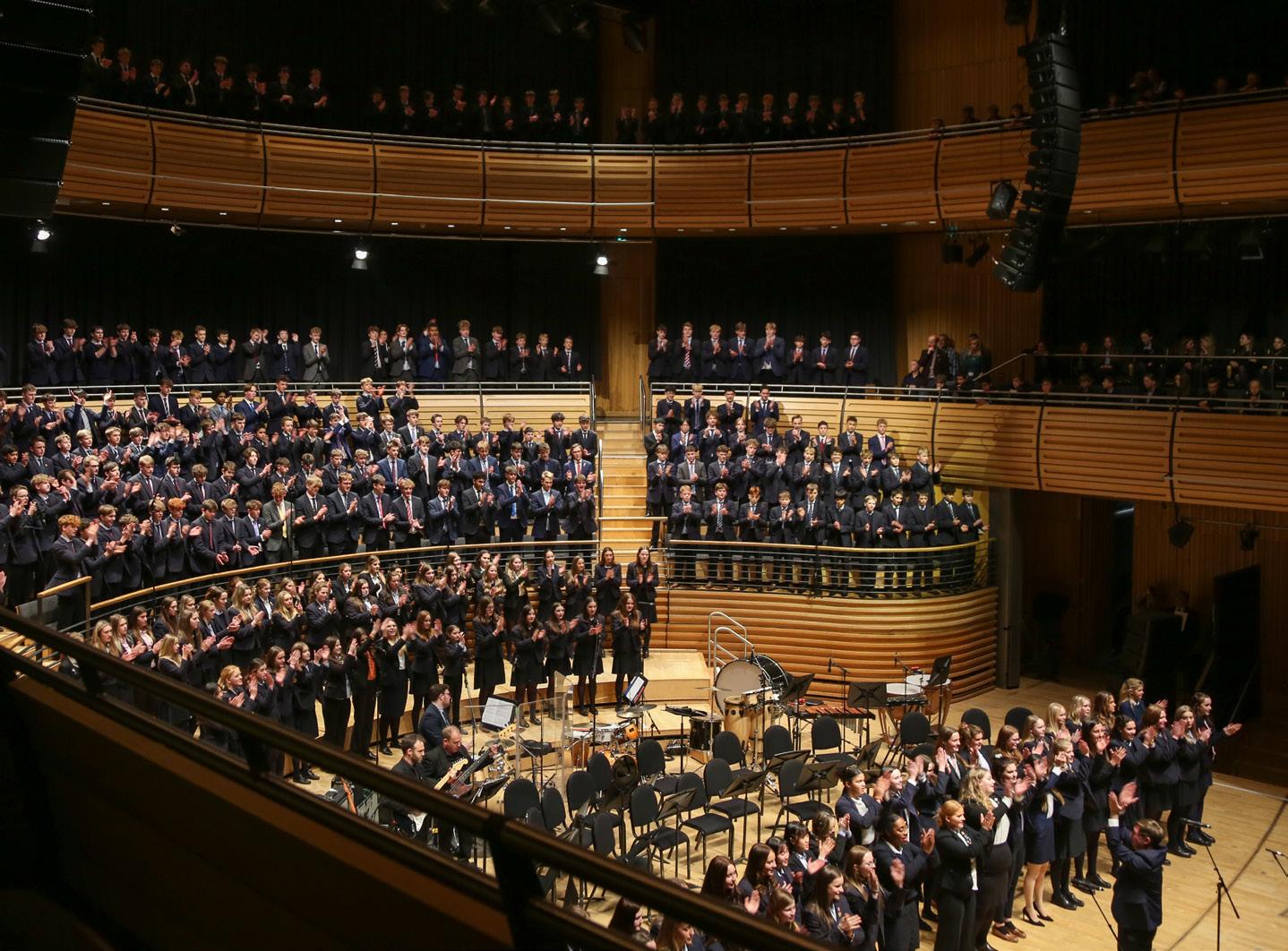
3 minute read
LATIN
Head of Department: Mr John Gedye
Email: jdg@barneyschool.org.uk
Advertisement
Course name: GCSE Latin Exam board: OCR
WHY LATIN?
If you have studied Latin before, you will know how much it has shaped much of our own language, as well as our culture, history, politics, and many other areas of modern life. Few subjects offer the range of skills that Latin does – from critical thinking and problem solving to analysis and evaluation.
While students learn as much of the Latin language as they can, the aim is to use this to investigate the world of the Romans and see how it has shaped our own, so there is a lot more variety in Latin GCSE than they may have experienced before, but if you students have enjoyed Latin so far, then it is an excellent option that is highly regarded by universities and employers.
The course is accessible for students who have studied Latin previously (ideally for at least 2 years). GCSE students benefit from opportunities and trips outside the classroom, including Hadrian’s Wall and an annual trip to the British Museum.
The course also offers a trip abroad every two years: in 2025, we aim to take a trip to Rome, Pompeii, Herculaneum and Naples.
SYLLABUS CONTENT:
As well as continuing to learn the language and practice translation, students are introduced to three new areas for the first time: English to Latin translation; Latin literature; and Roman history and culture. We study a Latin text in the original and discuss the writer’s background, social context and aims as part of evaluating his writing.
Unit 1: Latin Language: translation and comprehension with the option to attempt some English-Latin translation.
Units 2-3: Latin Verse Literature: studying a Roman poem in the original text; this will include the story of Aeneas in Carthage or the myth of Baucis and Philemon.
Units 4-5: Latin Prose Literature: studying Roman historians in the original: this will include the story of the Roman hero Scaevola, and the murderous empress, Messalina.
Unit 6: Latin Literature and Culture: studying aspects of Roman society from sources (translated into English for us). This will cover both literary and archaeological evidence and is a great opportunity to studying Roman civilisation for those who have not done so before. This will include the Roman entertainment (such as gladiators and chariot racing) and Roman Gods, myths and beliefs.
Unit 1 is compulsory; we choose two further units from Units 2-6
ASSESSMENT:
Students will sit three exams:
Paper 1: Unit 1 (Latin Language)
90 minutes
100 marks
50% of overall mark.
Paper 2: 1 of Units 2-6 (Latin Verse Literature, Prose Literature or Literature & Culture)
60 minutes
50 marks
25% of overall mark
Paper 3: 1 of Units 2-6 (Latin Verse Literature, Prose Literature or Literature & Culture)
60 minutes
50 marks
25% of overall mark
Music
Head of Department: Mr Richard Dawson
Email: rjd@barneyschool.org.uk
Course name: GCSE Music
Exam board: Eduqas (WJEC)
WHY MUSIC?
Music is a rigorous but hugely enjoyable and rewarding subject, and it is held in high regard by Universities and employers.
GCSE musicians develop a range of skills, including performance skills, public speaking, creativity, essay-writing, analysis and evaluation, problem-solving, independence and teamwork.
Students who take GCSE Music can go on to study in further depth at A Level or degree level, or take the skills they have learned and apply them to their other subjects. Careers in Music can include becoming a performing musician, composer, music journalist or blogger, music producer, concert promoter, arts administrator, teaching, tour management and many others. The skillsets developed can also be used in a range of other careers, such as medicine, law, accounting and management.
SYLLABUS CONTENT:
The Music GCSE course is a performance-based, practically driven course, which deals with the three essential elements of music: performance, composition and appraising (listening and critical analysis). Four areas of study create the driving force for performance, composition and listening: Musical Forms and Devices, Music for Ensemble, Film Music and Popular Music.
Unit 1: Performing (30%)
• One solo performance of approximately Grade 4 standard.
• One ensemble performance with 2 or more players, again of approximately Grade 4 standard.
• Both performances are recorded during Year 11, and together must total a minimum of 4 minutes in length.
Unit 2: Composing (30%)
• Compose two pieces of music:
1. One composition to a brief set by the board.
2. One ‘free’ composition.
• Compositions are usually typed up or constructed using computer software, and together must total a minimum of 3 minutes in length.
Unit 3: Appraising (40%)
• A 1 hour and 15-minute written paper, sat at the end of the GCSE course.
• 8 questions, each worth 12 marks, separated into four Areas of Study:
1. Musical Forms and Devices
2. Music for Ensemble
3. Film Music
4. Popular Music
All students who study Music GCSE will spend time performing, composing and listening and evaluating music from a range of musical genres.
Students taking GCSE Music are expected to take part in a range of ensembles, rehearsals for which take place each week, and take part in regular concerts both in and outside of school. In the first year, students will learn a toolkit of compositional techniques, and their compositions will, in time, be performed by other musicians.
The examination side of the course will be taught in the remaining lessons per week, and the four Areas of Study will be covered by February Half Term in Year 11.







